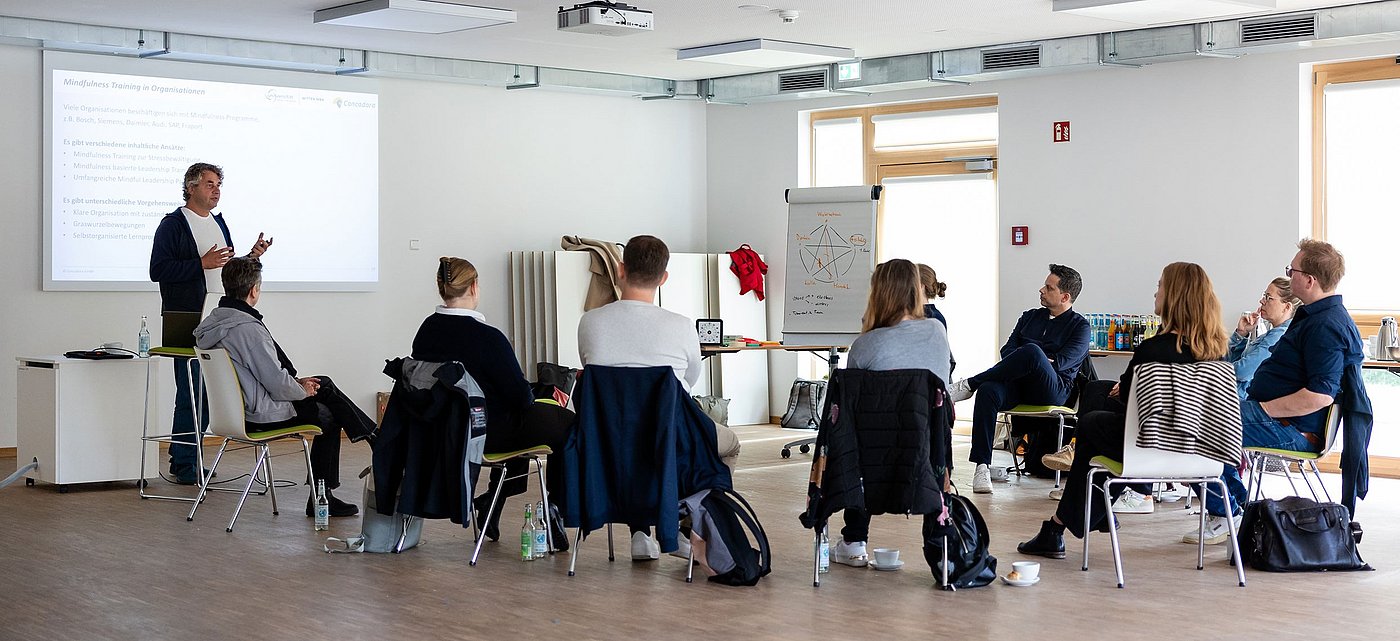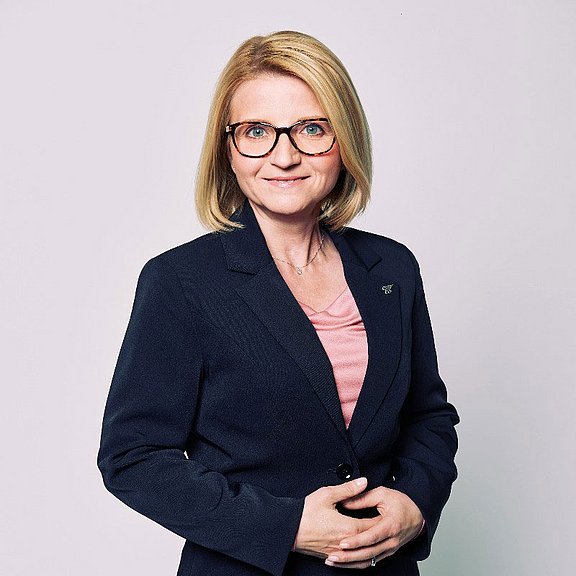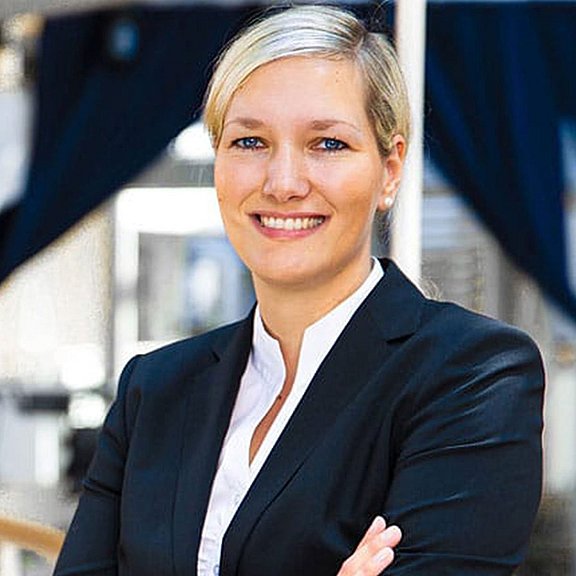The special challenges of the Next Gen in family businesses
Zukunftsmusik: our series of talks with future shapers.

The Professional Campus in conversation with Junior Professor Dr Anne Heider, Co-Director of the Witten Institute for Family Business and Jessica Hirsch, Partner at Struktur Management Partner.
Next Gens in family businesses - the compact course "Business Practice for NextGens" starts on 4 September 2025 at the Professional Campus of the UW/H. The course is a cooperation between the Witten Institute for Family Business (WIFU) and the renowned management consultancy Struktur Management Partner (SMP).
We spoke to Anne Heider, Co-Director of WIFU and Programme Director of the course, and Jessica Hirsch, Partner at SMP, about the particular challenges of NextGens in family businesses.
Professional Campus: We are living in special times. The next generation in particular is facing special challenges. While some are confronted with existential fears, company successors have a particularly privileged position and a lot of room for manoeuvre when it comes to helping to shape the "next age" (Horx/Future Institute). At the same time, they are under particularly high pressure - and in the sights of the older generations, civil society and the media if they do not fulfil the requirements - be it in dealing with wealth and natural resources or with regard to their own role model function in preserving democracy. So is it high time for a customised offer for the "next gen"?
Anne Heider: Prospective managers - whether in companies or in an associate:in function - face special challenges. But they also have certain expectations. For the current generation, for example, sustainability is a top priority, even before returns. There are simply different rules of the game that have yet to be invented. This concerns, for example, the redefinition of business models or supply chains. But the emphasis in private life has also shifted away from pure profitability towards social and planetary responsibility - not to mention private family life and quality of life. This area in particular has always had a high priority in family businesses, but the rule used to be: business comes first and the family, for example the partner by marriage, stays away. It is particularly noticeable when it comes to succession: what used to be a great honour is now rejected by many Next Gens - too much workload, too much responsibility, too little free time and quality of life. And that is a big change compared to the previous generation. As a result, many family businesses have no choice but to reinvent themselves.
Jessica Hirsch: Next Gen are, as described, confronted with a wide variety of challenges. Many Next Gen have told us that it helps them to be well equipped to deal with fundamental questions from business practice. For example, they find it very helpful if they can understand and interpret the complex company figures presented to them. However, they don't necessarily learn this at school or university, but from people who come from the field and bring this knowledge with them. What's more, many Next Gen employees don't have much time to devote to this in addition to the many other topics. That's why a programme tailored to the specific needs of this group makes perfect sense.
Professional Campus: Is the further training course "Entrepreneurial Practice for NextGens" (UPN for short) an important contribution on the way to the "Next Age"?
Anne Heider: It is indeed about future viability - not only for organisations, but beyond that for our society. Specifically, Next Gens learn how to develop value-orientated business models, how to rethink the entire production and delivery process and how to assume planetary responsibility. - Initiating such change processes requires not only skill and perseverance, but also qualifications that go beyond this.
Jessica Hirsch: That is of course an important point. The programme is about creating awareness and points of contact on the topics of value orientation and sustainable management. However, this is only one aspect; the most important topic is to pass on practical knowledge in a concise and compact way and to enable participants to identify and deal with the specific requirements of a company.

Jessica Hirsch
Partner at Struktur Management Partner (SMP)

Anne Heider
Co-director of WIFU and programme director of the course
Professional Campus: Tell us more about how the course came about: how did the compact programme "Entrepreneurial Practice for Next Gens" come about - why is the Professional Campus qualification programme for current and future associates of family businesses "Gesellschafter:innen Kompetenz" (GKE for short) not "enough"?
Anne Heider: In cooperation between the Professional Campus of Witten/Herdecke University and WIFU, we have been offering a successful programme to build associates' skills for several years. We are not only in lively dialogue with entrepreneurs, but also with company successors. We also organise regular events and get-togethers with them. This is how the wishes of this generation were brought to us. For example, there are now family members who tend to limit themselves to their role as owners. Our compact programme UNTERNEHMENSPRAXIS FÜR NEXTGENS was developed specifically for business successors, other members of entrepreneurial families and young professionals in family businesses as well as their partners.
Jessica Hirsch: In many conversations and encounters with Next Gen, we deal with exciting personalities. When we come to Management, many of them seem overwhelmed at first. When we then take them through the documents on a 1:1 basis, after a short time we see delighted faces. Management then becomes tangible. The programme supports the young generation in gaining more confidence in dealing with business management contexts and entrepreneurial thinking and acting. With tips, recommendations and perspectives from practice, a lot of things become clear very quickly.
Professional Campus: Why is it also important to consider the extended business family? Does this possibly also include the next generation?
Anne Heider: It turns out that partners are often surrounded by a vacuum - most of them don't understand the family business or business family system and don't get enough insight. Yet they play a significant role in the preservation and success of a company, starting with the preservation of values and the function that education has for the future generation. In addition, the associate structure has become more complex and diverse.
"It is of great importance that the family pulls together and acts as equals."
Professional Campus: The special thing about the programme is that it is also aimed at the partners. What made you decide to explicitly address the partners?
Anne Heider: We want to help overcome old role models. Married partners should feel that they belong as quickly and comprehensively as possible and feel secure within the family business. In the family business system, they play a significant role in shaping the preservation and success of the company. When it comes to preserving values, raising the next generation together and also in the operational business, it is of great importance that the family pulls together and acts as equals. Knowledge of the interrelationships is an important building block for recognising fields of action and being successful together.
Professional Campus: Many Next Gens first have to fight their way into long-established company structures, some of which have been run in a certain way and according to certain rules for several generations. A great deal of skill is needed between continuity and innovation. How does transformation succeed under such conditions?
Anne Heider: It takes communication skills, good conflict management and the ability to take on different perspectives. But the previous generation must also play its part and trust the new generation to make the handover a success. Solid, transparent family governance is therefore recommended. This is an important foundation - especially in transitional situations. In our new programme, participants learn how to use assertiveness, communication and negotiation skills to get their ideas and solutions accepted by a majority in the company.
Jessica Hirsch: That depends on many different factors. With the UPN, we concentrate on practical knowledge that helps us to be on an equal footing when it comes to important issues. By focussing on value orientation, we identify the specific areas that are crucial for a successful transformation. This knowledge helps in the discussion between the generations, so that topics can be addressed in concrete terms and discussed in a structured manner.